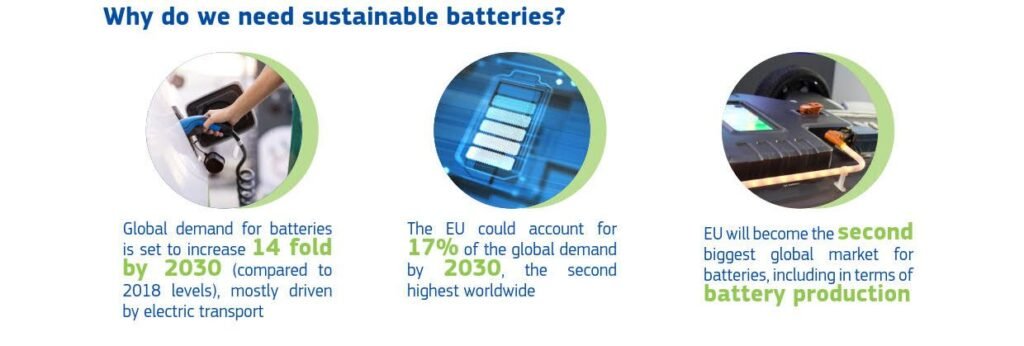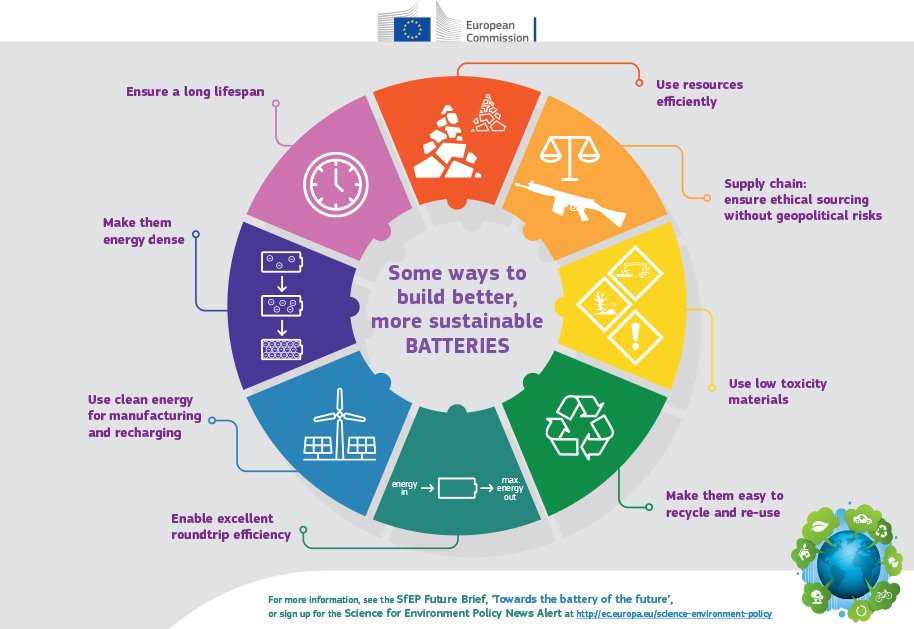Since 2006, batteries and waste batteries have been regulated at EU level under the Batteries Directive (2006/66/EC). A modernization of the framework is necessary because of changed socioeconomic conditions, technological developments, markets, and battery uses.

The European Commission proposes to modernize EU legislation on batteries, delivering its first initiative among the actions announced in the new Circular Economy Action Plan.
Batteries placed on the European market should become sustainable, high-performing and safe all along their entire life cycle. They propose mandatory requirements for all batteries (i.e., industrial, automotive, electric vehicle and portable) placed on the EU market.
Requirements such as
- use of responsibly sourced materials with restricted use of hazardous substances,
- minimum content of recycled materials,
- carbon footprint,
- performance and durability and labeling, as well as
- meeting collection and recycling targets,
The above mentioned are essential for the development of more sustainable and competitive battery industry across Europe and around the world.
The proposed regulation defines a framework that will facilitate the repurposing of batteries from electric vehicles so that they can have a second life.

Demand for batteries is increasing rapidly and is set to increase 14 fold by 2030. This is mostly driven by electric transport making this market an increasingly strategic one at the global level.
Such global exponential growth in demand for batteries will lead to an equivalent increase in demand for raw materials, hence the need to minimize their environmental impact.

The measures that the Commission proposes will facilitate achieving climate neutrality by 2050.
Reference- Clean Technica, European Green Deal, Science Alert, Forbes






